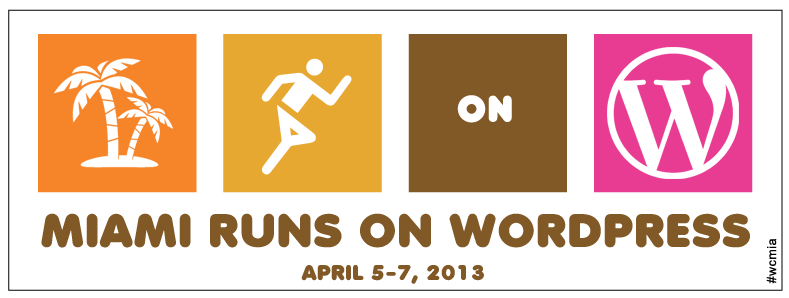Interesting day. It all started with Jake Caputo’s Automattically Blackballed post and Twitter exploded (or resurged, if you prefer that term) with debates over GPL and who can (or who no longer desires to as a result) sponsor or speak at official WordCamps. This blog post isn’t to share my views (so if there’s more below of one side vs. another, it’s just concidencse). I simply am sharing the best tweets of today.
I've been blackballed from WordCamps: http://t.co/7vmV52Db
— Jake Caputo (@jakecaputo) January 22, 2013
Looks like I won't be speaking at or attending a WordCamp any time soon: http://t.co/Na90oCEb
— Clark Wimberly (@clarklab) January 22, 2013
If you've ever sold a copy of Photoshop on eBay, you can't speak at a WordCamp #wclogic
— Brad Williams (@williamsba) January 22, 2013
@dimensionmedia Yes, the good news is that I don't sell almost anything at all, so I may be the only speaker application left. 🙂
— Chris Lema (@chrislema) January 22, 2013
https://twitter.com/carlhancock/status/293788737366798337
https://twitter.com/ryancduff/status/293790291356442624
@technosailor TBH, I'd rather speak at a BarCamp or PodCamp than a WordCamp…; I'd rather be an evangelist than a motivational speaker.
— CMDR Mitchcraft 🎮 (@thatmitchcanter) January 22, 2013
@TurcuCiprian I can contribute to core, i can attend wordcamps, I just can't contribute to WordCamps. WordPress ok, WordCamps not ok.
— Jake Caputo (@jakecaputo) January 22, 2013
@clarklab @carlhancock That's not true either. It's just not always consistent bc not all WC organizers catch it like they are supposed to.
— Jinx Mylo (@jenmylo) January 22, 2013
https://twitter.com/wonderboymusic/status/293794595261804544
None of this GPL/Foundation stuff is new – this is why non-WordCamp WordPress events happen. #WordUp
— LSW 🌷🌿 (@LisaSabinWilson) January 22, 2013
https://twitter.com/trepmal/status/293795268745388032
WordPress people participating in today's insanity: If you're not a lawyer, you'll probably end up looking stupid by trying to argue law.
— Evan Solomon (@evansolomon) January 22, 2013
A House Divided: http://t.co/NUIFfj9h, Envato, and GPL Battle http://t.co/EYLA0eAd
— Torque (@TheTorqueMag) January 22, 2013
https://twitter.com/ryancduff/status/293807585017073664
You Might Be A WordCamp Speaker If ….“@williamsba: If you've ever installed a non-GPL plugin, you can't speak at a WordCamp #wclogic”
— LSW 🌷🌿 (@LisaSabinWilson) January 22, 2013
If WPorg sold premium plugins and themes, there would be no reason to use Theme Forest or any other store for that matter
— Brad Williams (@williamsba) January 22, 2013
What marketplace out there affords dev's the same audience & opportunity as Envato but enforces the GPL? Build solutions not battles!
— Stank (@dremeda) January 22, 2013
GPL aside, I have no clue how selling themes affects someone's ability to give a training. #WordPress
— Ryan Don Sullivan (@ryandonsullivan) January 22, 2013
WordPress, WordCamp, and the GPL License War http://t.co/tqhpqMtm
— designer (@chriswallace) January 22, 2013
https://twitter.com/ryancduff/status/293820522448424960
Envato sponsored the WordPress Community Summit?! And people wonder why we're all confused http://t.co/ybtH5aHm
— Brad Williams (@williamsba) January 22, 2013
I hereby dedicate this to today's WordPress/WordCamp/GPL debate on Twitter: pic.twitter.com/7ayetL0b
— David Bisset (@dimensionmedia) January 22, 2013
Still on the lookout for my invitation to WordCamp Blackballs 2013. I'm in as long as there's beer & wings! #GPL #wpdrama #passthepopcorn
— Sarah Gooding (@pollyplummer) January 22, 2013
To be clear everything we do at @webdevstudios is GPL. We will always fully support the license that powers WordPress and you should to!
— Brad Williams (@williamsba) January 22, 2013
@ryancduff Like this? http://t.co/hGsmR1IK
— Matt Mullenweg (@photomatt) January 22, 2013
@williamsba Come on.
— Matt Mullenweg (@photomatt) January 22, 2013
If it wasn't for the freedoms of the GPL I wouldn't be the developer I am. I probobly wouldn't be a dev at all. That's why I toast to it
— Aaron Jorbin (@aaronjorbin) January 22, 2013
Regarding the Envato/WP situation, the solution I like best is to have the community create a better marketplace that respects the GPL.
— Alex King (@alexkingorg) January 22, 2013
I'd love to see http://t.co/2TzfntH1 be that solution, with all major players getting behind it and helping make it great. A rising tide…
— Alex King (@alexkingorg) January 22, 2013
@markoheijnen @scottbasgaard The key question is if WordCamp should be a community based event or a centrally organized event.
— Morten Rand-Hendriksen is elsewhere (@mor10) January 22, 2013
https://twitter.com/MacManXcom/status/293863675197026305
https://twitter.com/chip_bennett/status/293872915919822848

